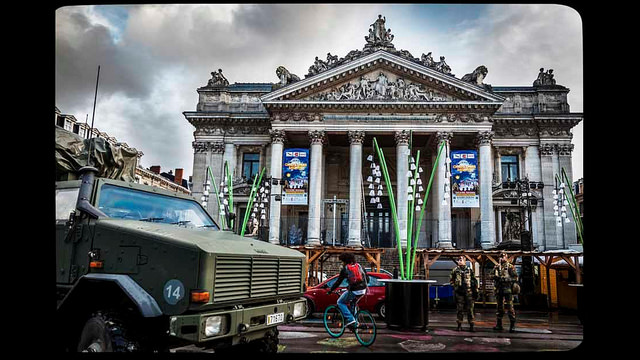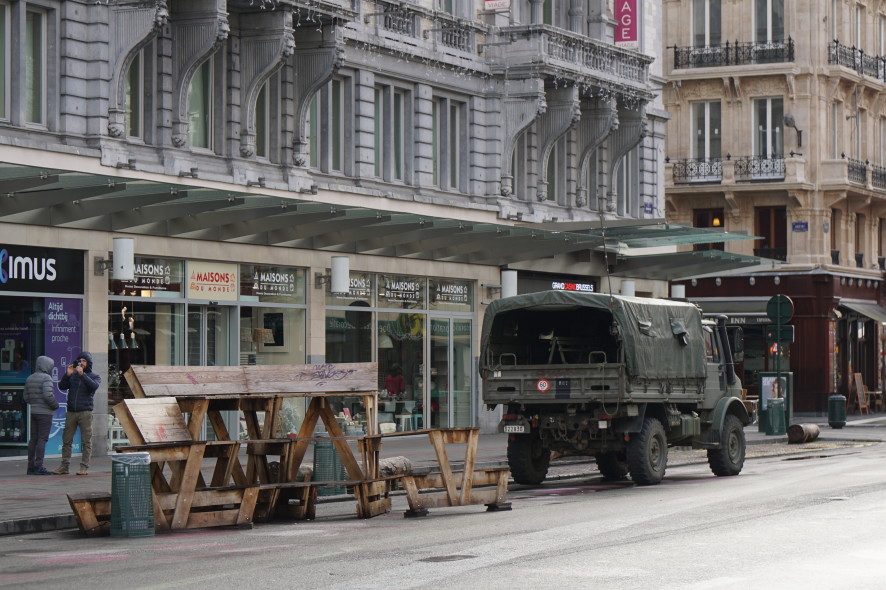There is not much that we can be certain about. One thing though seems pretty certain to me: that we live in troubled times. Not because us Westerners face any true hardships, but because it appears to me that these days many decisions need to be taken that will deeply affect generations to come. Proponents of historical path dependency will interject that this is always true. Maybe so.
Anyhow, we now face many great challenges: climate change, a situation in the Middle East and beyond where state failure is the norm, unprecedented migration, and terrorism – to name just a few. How we handle these challenges will be decisive for how we will live in the centuries to come. Liberal democracy claims to be the pinnacle of political systems, yet so far its response to the challenges mentioned above is anything but effective or even remotely close to well deliberated.
During the last weeks I made some experiences that have led to deep frustration with how our politicians behave.
A week ago Friday and Saturday some close friends and I walked the streets of Brussels in complete disbelief. Police and military personnel everywhere – everywhere! Armed to the teeth! In front of Brussels Centraal stood a military vehicle that looked like something from Jurassic Park. Sirens. Flashing blue lights. A drunk guy ran past us at some point screaming: “C’est la guerre! C’est la guerre!” (“This is war!”). While we were strolling through the comparatively empty streets of Brussels, we were making jokes about all of it. Maybe that was our way of handling it. But a day later, it really hit me. What is going on? State of emergency had always been an abstract concept to me.
Then, last Thursday, in Berlin, I was watching the news in which German Defence Minister Ursula von der Leyen was being interviewed. She was asked whether Germany was now at war. The decision to deploy German troops to support the pseudo coalition fighting ISIS in Syria had just been made. Von der Leyen replied that this was not war since it is not two states that are fighting each other – let that sink in.
So here is the German Minister of Defence claiming that there is not a war going on against ISIS or at least that the German support does not constitute an act of war. Either she has never heard of Mary Kaldor’s concept of “new wars” or she is knowingly lying to the public, both of which would be equally scandalous.
Friday, as I was boarding my flight to Frankfurt my anger at the current situation turned into plain, numbing shock. My mom, standing beside me asked the man in front of us if they maybe knew each other since his face seemed familiar to her. He said that he was a member of the Bundestag, the German parliament, and that she might know him from TV. They exchanged a few words and then he turned to me. So, we started talking. I present to you the end of our conversation.
Yannic: “So what’s it like at the Bundestag at the moment? High alert?”
MP: “No, everything’s normal.”
Y.: “Oh ok. I was in Brussels last weekend.”
MP: “Shit was hitting the fan there.”
Y.: “Yeah, it was crazy. I have never seen anything like it. [I elaborated on my experience, see above]
MP: “It truly is crazy what is going on. [pause] And every day new ones are coming. We need to shut the border now!”
Y.: “And then what? The refugees will be stuck at the border.”
MP: “Good. That’s the pictures that should be going out to the world. The message must be: don’t come.”
No more words were spoken between us. My mom and I exchanged glances of disbelief. I will not name the MP, but I will say that he was a member of the CHRISTIAN Democrats.
So why am I telling you all of this? For me the following became clear:
- We are in a state of emergency – in many respects.
- There are leading politicians who are either uneducated in their main fields of activity, deliberately deceptive, or both.
- There are parliamentarians who seem to be ignorant of the fact that the Paris attacks were conducted by EU nationals, not refugees and that these refugees are fleeing the very same terror that has now reached EU soil. Or even worse, they are aware of this, but still choose to conflate the terrorism and migration discourses for reasons of political opportunism.
- My faith in democracy is deeply shaken by all of this. Who are we electing? Do we need a more elitist government? Isn’t it the time for experts, technocrats?
Troubled times indeed. And troubled times produce troubled minds. Let me know what you think about my observations. How are you experiencing our democratic systems these days? Isn’t it time for radical change?
Image by Patrick Willemark, taken from flickr





